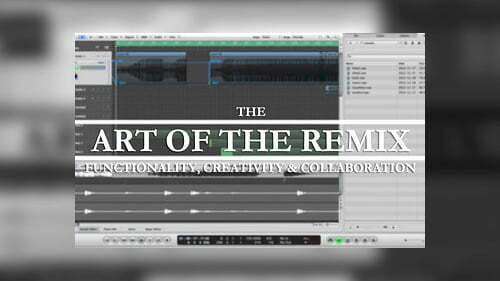The Art of Listening
Lately I have been considering how the anticipation of prominent album releases have been built up and how listeners perceive and react to them.
One example of note is Daft Punk’s forthcoming Random Access Memories. As far as album marketing campaigns go, theirs has been flawless and very professional without pulling any shady tricks.
However, where their album build up is concerned, among people’s social media meanderings on the subject, [there] is something that is somewhat perplexing. What stood out among people’s comments regarding the lead single from Random Access Memories is that some people are keen to jump the gun regarding their judgement of the album as a whole – without actually having heard the whole body of work.
The public has heard only one of the album’s songs thus far, Get Lucky, and although many reactions have been very positive, some have been uselessly negative. It is certainly normal to dislike music; some things simply do not affect us deeply when others are very much touched by the very same music.
What is perplexing is that some people feel the need to not only tell others they dislike something but that they also feel the need to make statements directed towards the artists or bands that infer the artist should change something about the music that they have already completed and scheduled for release.
It is all well and good to fantasize about what something might sound like if it were changed to one’s own personal desires but the reality is that an artist, if they ever even see such comments from their fandom, is almost entirely unlikely to change something based on the desires of a very few followers.
The other bewildering phenomenon is the pre-judgement of an entire album based upon one’s listening experience of a single song off of that album. Although it is tempting to jump to conclusions it is simply bad listening practice to do so. If one truly is uninterested in hearing more then the solution is a simple one: leave the song and album behind and respectfully move on to listening to something more personally resonant.
There is no need to chastise an artist for doing something that they put effort into making, no matter who they are, just because that particular piece or body of work is something one is not touched by.
Listening to an album in such a way as to fully absorb and understand it requires a small degree of effort on the part of the listener. Not everyone shares the same listening habits, but out of respect for the music in any given release – if you do indeed seek to determine whether you truly like or dislike something – it is good to listen to something in full and without expectations.
I intuit that the majority of listeners practice respectful listening habits and it is only a smaller portion of any given audience who behave with disrespect towards artists. Nevertheless it has me wondering if that disrespect may stem from the changing methods of music consumption with many people putting aside physical releases for quick easily obtained digital releases.
When I was younger, my very first music purchases were on various physical media and they were made during a time when file sharing was not yet an issue within the music community. I often had no idea what the music was actually like on many of those releases.
Where vinyl was concerned, I would pick out the records I thought were interesting, perhaps because I knew of the artists who created them. Or perhaps because the sleeves simply caught my attention and aroused my curiosity. Then I would wait for my turn to play my selections at the listening station the shop had set up.
I would listen to about one minute of each track on a given release to get a brief sniff of the flavours contained within. If I didn’t feel it immediately to be something of interest I would then put it aside and move on to the next record. Once I had picked out what I enjoyed I decided whether or not to give the ones I disliked another chance. If I decided I did not like something I simply moved on from it and went home with my haul to listen in full to the ones I did enjoy.
Once I became familiar with artists and labels that I enjoyed I would often make a purchase without even having heard the record. I had the sense of expecting something I would enjoy from being so familiar with those artists and labels but of course I was not always surprised with lovely tunes. Sometimes I would come home and listen to a record from a label or artist I was familiar with and it did not make me feel as I thought it would.
From this I learned to keep my expectations balanced. When you haven’t heard something yet, sometimes your mind conjures up a fantastical version of what a given record might sound like because of your familiarity with the label or artist’s past work and that fantasy then becomes what feels like a very legitimate expectation.
The reality is, however, that artists are always changing and will never stay in the same sonic landscape for an extended period of time (imagine how boring our musical world would be if everything stayed the same).
I began purchasing music via mail-order on the internet in the early 00s and with this came the advantage of easily being able to listen to clips of a release before deciding to make the purchase. My expectations became more realistic the more music I could hear – and the more changes I could hear artists making for themselves. In this regard the internet has been exceptionally helpful – we now can hear almost anything we wish to hear before we decide to make something a part of our collection or not.
To backtrack briefly, I should mention that I occasionally made purchases based solely upon reviews I had read in magazines. Sometimes I would just see album art I liked and neglected to even read the reviews. Daft Punk’s Homework was one such purchase; I saw the artwork and that was enough to convince me at the time – it was elegant and mysterious in my eyes. I had absolutely no expectations and was very pleasantly surprised when I came home with the album one day and heard it for the first time.
My point regarding expectation is that when you keep your expectations balanced you will not be setting yourself up for disappointment. If you end up with something you dislike, you learn from it and look for ways to listen to things before hand. On the other hand if you end up with something you enjoy, you end up rather taken aback and immersed in a surprising world in your head.
These days we are almost born umbilically attached to the internet and we no longer have to concern ourselves with being unable to hear something before we purchase it. The internet has however lead to a growth in impatience among would be listeners.
Most albums are generally announced two months before they are released and within those two months one will hear a single or two from the album to offer a small glimpse of what might be to come.
When a label or artist releases such singles they are not meant to describe every piece of work on an album as a whole but rather to arouse your curiosity to hear more once the album is released. The same goes for album reviews that are published before an album is released; it is all for the purpose of building wonder and curiosity with the hope that you will be enticed into listening to the album.
Since reviews are entirely subjective and based solely upon the reviewer’s own personal taste we cannot know just how a body of work will affect us personally until we actually hear and feel the music for ourselves.
Many online publications offer free streams of albums a week or two before their official release date. It seems even more absurd to complain about disliking a release and stating facetious opinions when you have been given the opportunity to try it out without any cost to you aside from your time.
It is perhaps a matter of perception that our expectations are sometimes higher than they should be for any given release. Therefore it is up to us on a personal level as listeners to regulate our feelings and be aware that there is always a possibility that we will not enjoy something – and that it is not the artist’s problem if you do not enjoy something because they have changed their sound.
It is important to remember the following as a listener and a music fan: The artist is not going to change something about their music just because you think they should based on your individual personal preferences. An artist cannot be expected to satisfy the lusts of every one of their listeners and an artist will inevitably change and evolve over time – possibly into musical territory you do not enjoy personally.
When artists are creating music from a place within themselves they are doing what they love to do and they are doing what they want to do; they are working within an internal world that is entirely their own and the lusts of others are of no concern at all. It is not arrogant of them to do so – that is simply how creation works for an artist or band.
It is not uncommon to drift away from an artist who’s work you once greatly enjoyed because they have moved on to make different music that you no longer enjoy and that is completely fine. The unbecoming thing is the unrealistic expectation that the artist should still fulfill your individual desire for them to return to something that they no longer can feel as an artist or as a human being.
It is somewhat akin to fantasizing that a relationship between two individuals who’s mindsets have drifted apart might still be able to function just because of one’s own nostalgic desires for a time where that relationship used to work – it does not help anyone.
The nature of music, and art in general, is that it is made in the moment – when its creator feels something inspiring – and it is made by humans with beating hearts, emotions and minds of their own that will change as time passes. Humans never remain exactly the same and thus what they create will change along with them. We cannot expect a creator to please us eternally – it is selfish and disrespectful.
We can take with us the music that we love from their past body of work but when something does not personally feel resonant then it is beneficial to move forward towards the discovery of other creations. Unless one is collaborating directly with an artist then it is a fruitless effort to state that the artist should do certain things to modify their work to suit one’s own personal desires.
I do not at all expect such behaviour, on or offline, to change any time soon. I feel it is something of importance that should be given some degree of thought at the very least.
The tl;dr version
A) Attempting to shift an artist back to something that they are no longer in tune with is akin to attempting to change the wind’s direction by breathing into it.
B) Be open and explore endlessly but be respectful of the artist when you no longer like what they are doing.










